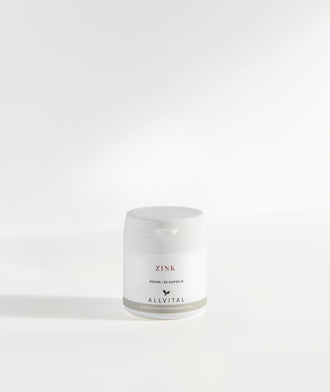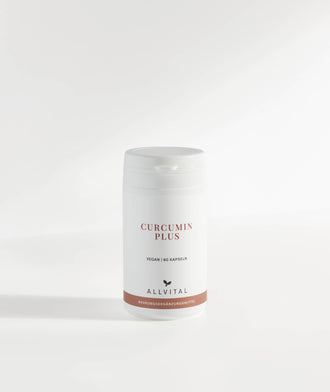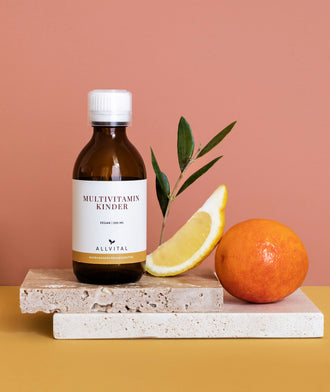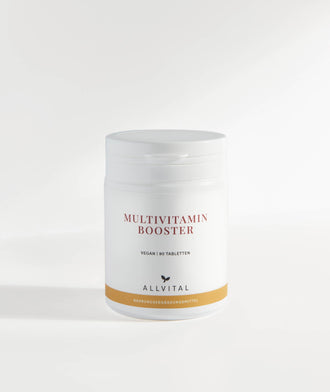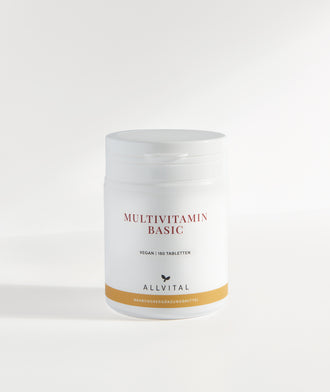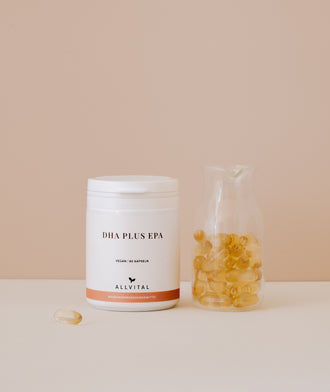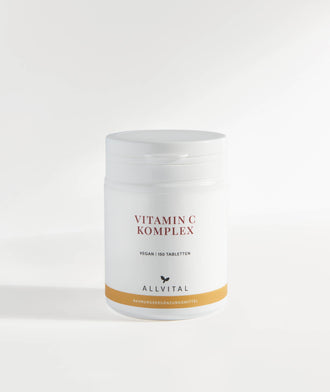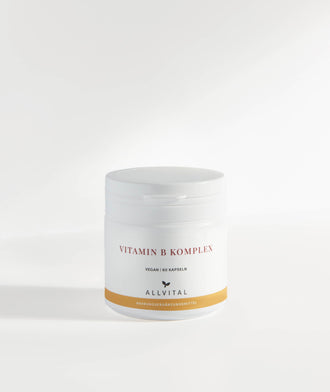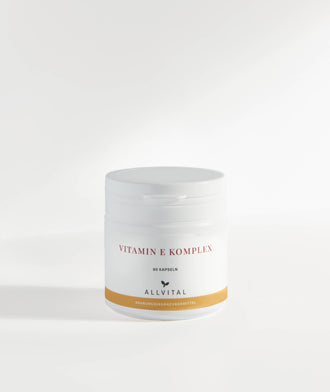
Essential nutrients for healthy eyes
Our eyes are a precious asset that we often take for granted until problems arise. Maintaining eye health in the long term can be supported by a balanced diet and specific essential nutrients.
Nutrient deficiency harms the eyes
For vision and other metabolic processes in the eye to function properly, the body requires certain micronutrients. Additionally, protective substances like antioxidants and specific plant pigments are necessary to shield the eyes from harmful UV rays. A lack of these vital nutrients can impair eye function. Increasingly, human studies show a link between the intake of specific nutrients and a reduced risk of eye diseases such as age-related macular degeneration, cataracts, and dry eye syndrome.
Important nutrients for eye health
The health of the eyes is closely connected to the overall health of the body. Factors such as high blood pressure, impaired blood sugar regulation, or inflammatory processes in the body can negatively affect eye health. Therefore, a complete supply of all necessary micronutrients is essential for our eyes' health.
Our micronutrient complexes – Multivitamin Basic, Multivitamin Booster, and Multivitamin Kids – provide a solid foundation. Additionally, several nutrients have special significance for eye health, which we will introduce below.
Vitamin A and beta-carotene
Vitamin A is a fat-soluble vitamin that plays a crucial role in vision, especially in low light. It is used to build rhodopsin, a pigment in the rods of the retina responsible for night vision. Therefore, a deficiency in vitamin A can lead to night blindness. Additionally, Vitamin A is essential for the health of the cornea and for maintaining eye moisture. A deficiency can cause dry eyes and corneal damage (keratomalacia).
Vitamin A is found in animal-derived foods such as liver, egg yolks, and dairy products. Plant-based sources provide vitamin A precursors like beta-carotene, a carotenoid that can be converted into vitamin A in the body.
Beta-carotene is abundant in fruits and vegetables such as kale, spinach, carrots, and sweet potatoes. Moderate cooking enhances the release of carotenoids, and adding fat to meals can improve absorption. Vitamin A and beta-carotene are available in our previously mentioned complex supplements.
Vitamin C
Vitamin C, a water-soluble antioxidant, protects the eyes from damage caused by free radicals (oxidative stress). The eyes are particularly susceptible to free radicals due to constant exposure to light and high metabolic activity. Vitamin C also helps recycle other antioxidants like vitamin E and is crucial for collagen production, a structural protein in the eye's connective tissue.
Rich sources of Vitamin C include citrus fruits (oranges and lemons), kiwis, papayas, bell peppers, kale, and broccoli. Our Vitamin C Complex offers a variety of natural forms of vitamin C combined with other powerful plant antioxidants.
Vitamin E
Vitamin E comprises a group of fat-soluble antioxidants that protect fatty acids from free radical damage. The retina, with its high content of fatty acids, particularly benefits from vitamin E.
Foods high in vitamin E include nuts and seeds such as flaxseeds, sunflower seeds, wheat germ oil, and almonds. Other sources include green leafy vegetables, avocados, and sweet potatoes. Our Vitamin E Complex provides all eight natural forms of vitamin E in balanced dosages.
Zinc
Zinc is a trace element that is a component of many enzymes and has various functions in the body. It is important for immune function and skin health and plays a significant role in eye health for several reasons:
- Zinc supports the normal metabolism of vitamin A and helps transport the vitamin from the liver to the eyes.
- Zinc helps in the renewal of the visual pigment.
- Zinc helps protect cells from oxidative stress as a component of the antioxidant enzyme superoxide dismutase.
Foods high in zinc include meat, seafood, and legumes. Our zinc supplement combines three organic zinc salts with high bioavailability. When taking zinc, it's essential to also ensure adequate copper intake, as increased zinc consumption can lead to copper deficiency.
Omega-3 fatty acids
Omega-3 fatty acids, especially DHA (docosahexaenoic acid), are important components of the retina and support vision. They are also crucial for the development of the eyes and brain in children. The best sources of long-chain omega-3 fatty acids like DHA and EPA (eicosapentaenoic acid) are fatty cold-water fish such as salmon, herring, mackerel, and sardines, or certain types of algae.
Popular plant-based "omega-3 oils" like flaxseed oil do not contain DHA and EPA. The body can only convert the short-chain omega-3 fatty acids found in these oils, such as alpha-linolenic acid, to DHA and EPA to a limited extent, so that complete coverage is not possible.
Since few people eat fatty fish multiple times a week, and given the concern of heavy metal contamination, a high-quality omega-3 supplement like our DHA plus EPA product is recommended.
Lutein and zeaxanthin
Lutein and zeaxanthin are yellow plant pigments that belong to the carotenoid group like beta-carotene. These substances are known as macular pigments because they are found in high concentrations in the macula, the area of sharpest vision in the retina.
The macula's high lutein and zeaxanthin content underscores their importance for eye health. These carotenoids can absorb blue light, which is very energetic and can contribute to the formation of free radicals like UV rays. Additionally, they have antioxidant properties.
Foods rich in lutein and zeaxanthin include yellow and red peppers, corn, spinach, kale, parsley, and egg yolks. These substances often coexist in foods, and their absorption in the gut is improved by adding fat to meals.
Lutein and zeaxanthin are included in our DHA plus EPA supplement, which protects the omega-3 fatty acids from oxidation. Our antioxidant complex Curcumin Plus also contains both substances combined with many other valuable plant compounds.
Vitamin B2
Vitamin B2, also known as riboflavin, is a B vitamin that plays important roles in eye health. It is found in significant amounts in the lens and cornea of the eyes. Riboflavin has antioxidant properties and supports the energy metabolism in the eye.
Foods high in riboflavin include pollock and mackerel, cheeses such as Camembert, Appenzeller, and mountain cheese, as well as liver. Yeast and dried mushrooms are also good sources. Vitamin B2 is included in high doses in our Vitamin B Complex and is also part of our Multivitamin Basic, Booster and Kids.
Additional tips for healthy eyes
In addition to ensuring a good supply of essential nutrients, there are other measures you can take to promote eye health:
- Regular exercise improves blood circulation to the eyes.
- Avoid smoking and alcohol consumption.
- Protect your eyes from strong sunlight with UV-protective sunglasses.
- Ensure adequate sleep.
- Take regular breaks during intensive screen work to relax your eyes. Useful exercises include looking into the distance or moving your eyes in a figure-eight pattern while keeping your head still.
Conclusion: Nutrients can promote eye health
A balanced, nutrient-rich diet is the foundation for long-term eye health. To compensate for nutrient deficiencies in the diet or to respond to increased individual needs, supplementation with selected dietary supplements is recommended. The nutrients presented here are particularly important for eye health.


